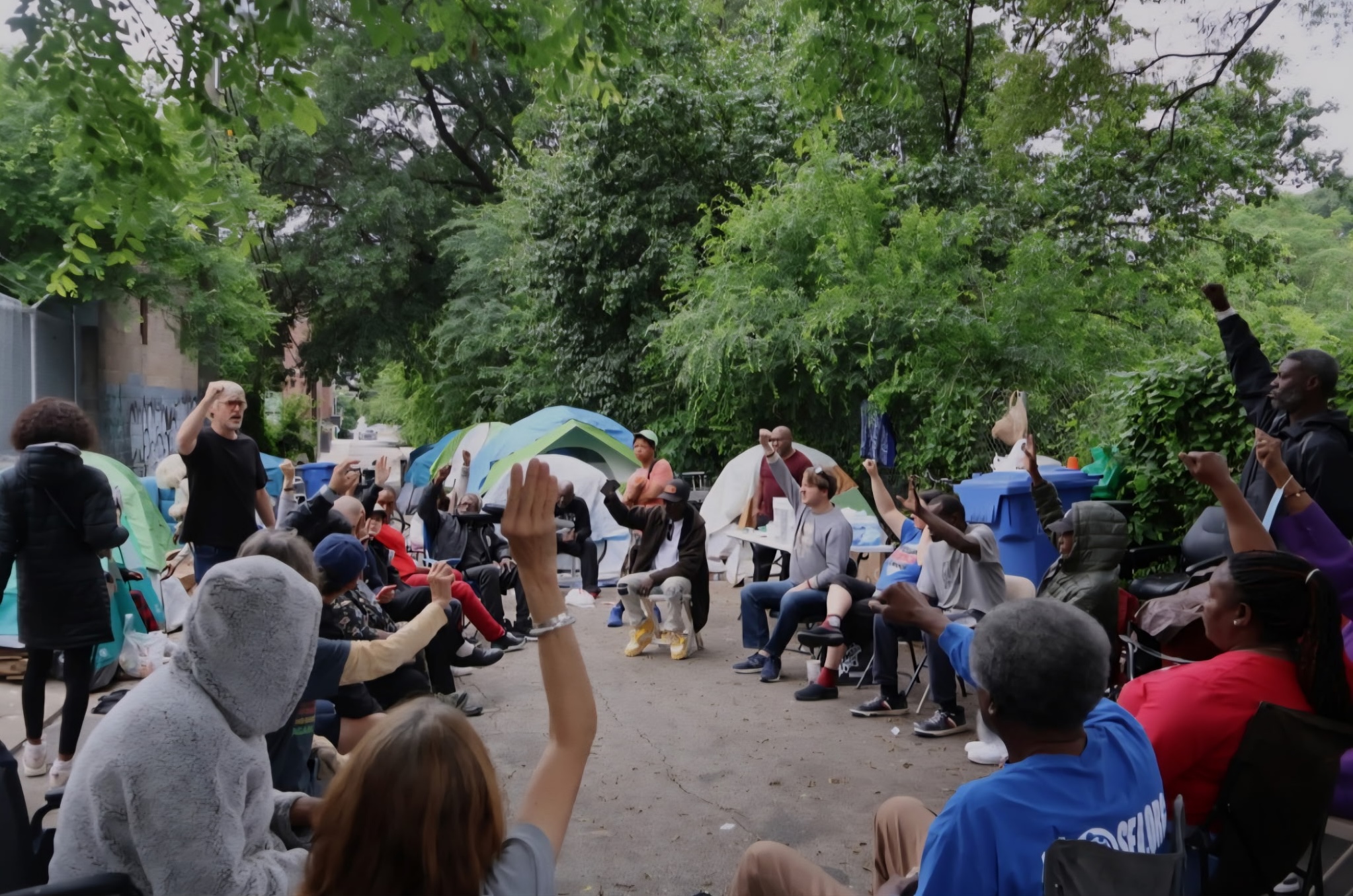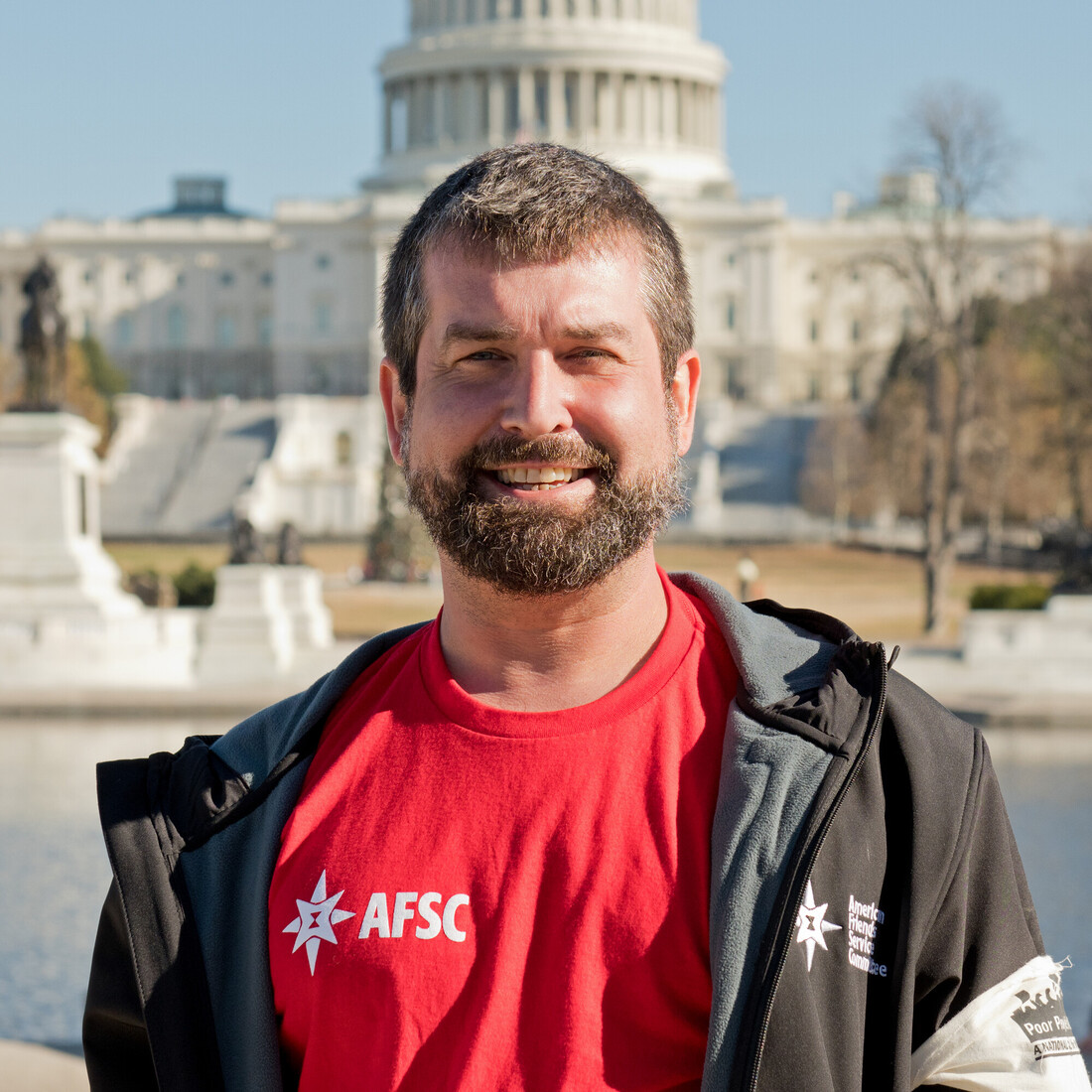
In January 2025, Cornelius Taylor was crushed to death by a bulldozer during a nighttime sweep of the Old Wheat Street encampment in Atlanta. The city was preparing for Martin Luther King Jr. Day celebrations. In its effort to “clean up” for visiting dignitaries, it deployed heavy machinery to clear a long-standing community of unhoused residents. The Old Wheat Street encampment had existed for more than a decade, or a couple, depending on who you ask. Taylor’s death was not just a tragic accident—it was the result of decades of failed policy, systemic neglect, and a city’s refusal to treat unhoused people with dignity.
The Guardian’s recent coverage of Cornelius's death brought national attention to the injustice. But here in Atlanta, the movement that emerged in the wake of his killing is not just about mourning—it’s about organizing. It’s about building power. And it’s about ensuring that what happened to Cornelius Taylor never happens again.
The Justice for Cornelius Taylor Coalition, formed in the days after his death, is led by people who have lived through the trauma of homelessness and displacement. These are the experts, people who know firsthand how the system fails, and who are best positioned to lead the fight to change it. Yet they are almost never invited to the table when decisions are made on issues that they live every day.
The Atlanta Economic Justice program has worked to change that. Since early spring, AFSC has hosted weekly discussion and decision-making circles with residents of Old Wheat Street. Our first meetings took place at the encampment. Now they are transported from the housing the coalition helped them secure to AFSC South Region office in Atlanta.
Every Wednesday, over a dozen people come together to break bread, share stories, and reflect on their experiences. Some come every week. Others join when they can and when they hear of this space, drawn by the opportunity to be in community and to build on the power being cultivated in the room. Sometimes the conversation turns to policy. More often, it’s simply a space for people to be heard, to be respected, and to be reminded that their voices matter.
This is what movement building looks like. It’s slow. It’s relational. It’s rooted in trust. It’s powerful and in our experience. It is what leads to lasting and impactful systems change.
Cornelius Taylor’s death was caused by a bulldozer. But it was also caused by policy—by a system that criminalizes poverty, displaces communities, and prioritizes optics and the comfort of the privileged over lives. The city’s response to homelessness has long relied on encampment sweeps, destruction of personal property, and temporary shelter options that many find unsafe and undignified.
The Justice for Cornelius Taylor Coalition joined the Mayor’s Task Force to End Homelessness, hoping to push for real change. But it quickly became clear that the city was not serious about reform. The task force upheld the same failed approaches, and the coalition resigned in protest.
Still, the work continued. The coalition developed a comprehensive permanent supportive housing proposal and submitted it to the city. It remains unanswered. Meanwhile, the city continues to contract with nonprofits that are often disconnected from the lived realities of those it claims to serve.
As our coalition pushes for reform, the city faces another high-profile moment that threatens to repeat past mistakes. Today, Atlanta is preparing to host the 2026 FIFA World Cup. The event will bring global attention to the city, just as the 1996 Olympics did. And once again, city officials are moving to “clean up” downtown—committing to the complete removal of visible poverty and homelessness.
Those who organized for human rights during the Olympics know this pattern well. The pressure to present a sanitized image leads to increased policing, displacement, and the erasure of communities. The war on the poor intensifies under the spotlight.
But this time, maybe something will be different.
This time, a movement is being led by those most impacted. This time, people who have experienced homelessness are organizing, strategizing, and building power. And this time, they are demanding a seat at the table—not as token representatives, but as leaders.
AFSC is part of broader efforts to protect human rights in the lead-up to the World Cup. But the work around OId Wheat Street is unique. It is restoring voice and agency to those who have been silenced. It is creating space for people to determine their own futures. And it is challenging the very foundations of how we address homelessness in Atlanta.
The World Cup arrives next June, but its effects are already being felt. The city is accelerating its efforts to remove unhoused people from downtown. The urgency is real. But so is the power being built every Wednesday in AFSC’s meeting room.
As more and more people—currently or formerly unhoused—gather to share meals and stories, they are also shaping an alternate vision for the future. They are identifying what matters most: ensuring that what happened to Cornelius Taylor never happens again, and permanently changing the systems that drove that bulldozer.
You can support this movement. You can stand with those building power from the margins. You can help ensure that Atlanta becomes a city that values dignity over optics, justice over convenience.
Sign the petition to honor Cornelius Taylor and demand real change from the City of Atlanta.
Cornelius Taylor's death was a tragedy. But it has become a catalyst. A rallying cry. A call to action.
We will not forget him. We will not allow his death to be swept away like the encampment that once stood on Old Wheat Street. We will continue to fight for housing, for dignity, and for justice—because every person deserves to live free from fear, displacement, and neglect.
